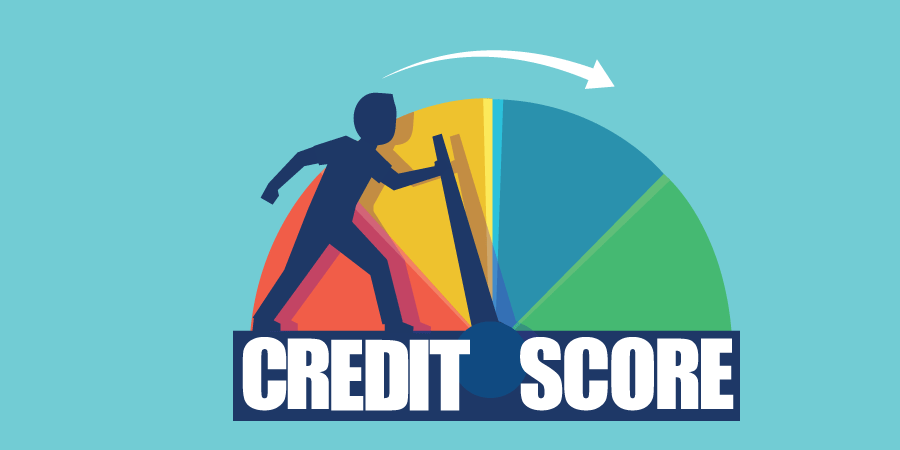What does CIBIL stand for?
Your creditworthiness is quantified by your CIBIL score. The three-digit number falls between 300 and 900. You can be eligible for greater credit card and loan offers if your credit score is 900 or higher. Most lenders, including banks and non-banking loan companies, want a CIBIL score of 750 or above (NBFCs).
Is your CIBIL score poor? How may the CIBIL score be increased?
It pays off to have a high credit score. A high credit score can speed up and improve your loan approval process. On the other hand, those who are in urgent need of money may find a low CIBIL score concerning because it may negatively affect their borrowings.
There are numerous ways to get loans, and each one is determined by the size of the loan or the amount the borrower is requesting. For all credit products, including personal loans and credit cards, all banks are now required to check each applicant's CIBIL score. There are ways to improve a CIBIL score, even if it is occasionally low.
How can my CIBIL score be improved quickly?
It's not all bad news, either. Your credit score will rise because of these seven prudent decisions. However, you should consistently work on these skills and keep track of your credit card bills and personal loan EMIs. Ten quick ways are shown below to improve your CIBIL score:
1. Make EMI payments on time.
If you are currently making EMI payments or monthly or yearly instalments for a running item like a car, smartphone, home, or other sizable expenditures, always pay on time. On-time repayments are one of the most significant factors influencing your CIBIL score. They assist in enhancing your creditworthiness.
2. Decide on a longer repayment schedule.
To raise your CIBIL score, always try to choose a longer loan repayment period. If your payback period is longer, the EMI payments will be less expensive and simpler to manage. As a result, your CIBIL score will rise.
3. Observe the accounting for previous debts.
Don't close a loan or debt after you pay it off because you're concerned that doing so would lower your CIBIL score. Paid-off debts reflect your capacity to repay to CIBIL and financial lenders. They also provide you with a timeline for when you will pay off your debts.
4. Build up your credit history.
You won't have any credit history if this is your first time asking for a loan. As a result, CIBIL won't be able to determine whether you can pay back your obligation. Obtain short- or long-term loans and a balanced credit mix to build a high credit score.
5. Avoid taking out several loans.
Never take on more than you can handle is one of the most important pieces of advice. It could be challenging to make regular payments if you take out more loans unless you have the resources to pay them back. Additionally, they may keep you caught in a cycle of debt, leaving you with little to no money for basic expenses.
6. Repay your credit card debt as soon as you can.
Before applying for new credit, be sure to settle any unpaid obligations. Any past-due obligations are an indication that you have a lot on your plate. Additionally, your bank or lender can draw the conclusion that you won't be able to pay your debts if they see that the majority of your income is going toward your present debt.
7 Avoid using all your credit.
To maintain a respectable credit score, keep your credit use percentage at no more than 30 percent. You should only use credit up to 30 percent of your total credit limit, per the ratio. A sure-fire tactic is creating a budget and separating your needs from your wants.
8. Review your CIBIL score report to look for any errors.
Even CIBIL has been known to occasionally produce inaccurate CIBIL score reports. Mistakes might happen when records are being updated. If you discover an error, notify CIBIL right away by submitting an online dispute or getting in touch with them. Within 30 days, CIBIL must resolve the issue, or at the very least, offer a solution.
9. Avoid taking any risks or surprise behaviours.
When you apply for a loan, banks will always check your cibil score and where your money goes. If they see any risky purchases or a pattern of erratic behaviour, they might reject your loan application. This includes taking cash in advance, paying less than what is owed, or skipping many installments.
10. Steer clear of using a joint credit card.
Being a joint credit card holder has advantages, but there are also disadvantages. You and your CIBIL score will be impacted by a partner's defaults, which will reduce your ability to get a loan.
Conclusion:
It's a good idea to start tracking your payments and, if necessary, strengthen your financial discipline if you want to apply for a loan to finance future objectives such as higher education, marriage, home ownership, vacation, and so forth. You can help yourself achieve the same goal by taking these ten steps.




.jfif)



No comments:
Post a Comment